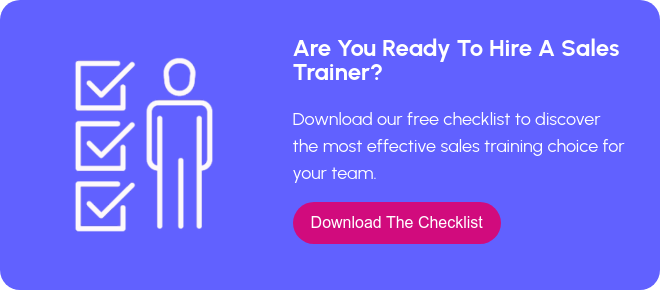What is a Sales Playbook?
Earlier this year, my friend and super sales trainer, Alice Kemper asked me my thoughts about the term Sales Playbook. I had shared with Alice that we build these often and help our clients execute these plans and she’s heard the term frequently lately and wanted to know if it was a buzz word or trend.
The following is my interview with Alice, answering:
What is a Sales Playbook?
This is shared from her blog:
Alice: Shawn, let’s begin with the definition of a playbook because there seems to be a variety of answers when I ask someone what is a playbook.
Shawn: You can probably call this by several names – making it really technical, jargon-oriented or exclusive but people identify simply with the term, "playbook” through its association with sports, it relates to organized strategy and execution.
A great sales playbook combines selling strategies that are responsive and reflective of how buyers consume information and form decision-making criteria and sales process, a detailed methodology that reinforces brand position, creates consistency in customer experience, leverages information to shorten sales cycles and gives visibility for forecasting.
If you’re looking to quickly and efficiently take your new or existing brand strategy to market, we propose creation and integration of a sales playbook
Alice: Why are playbooks the hottest sales tool today? How did we live without them?
Shawn: If you’ve ever watched a group of 4 year olds play soccer, you can understand why we need a sales playbook.
Without the strategy and process for execution, we all (sales people) tend to revert back to our own personal strategies—chasing the ball wherever it goes, not passing, not sharing, and not leveraging any strategy to score. It’s a simple metaphor, but effective, don’t you think?
Understanding both the strategies of how to find, connect and pursue business as well as the systems to execute the strategies is key for several reasons: scalability (increasing your sales force and market penetration), shortening the sales cycle and operating leaner and, therefore, greener.
Organizations that implement and execute both the strategy and processes see dramatic results. We see many organizations that create the processes but they’re not backed by smart, strong and yet, flexible strategies and sales teams don’t find them effective because they are not actually helping them sell smarter or more strategically—they’re about being accountable to the tools, not the buyers.
How many times do you hear sales people say “Oh, boy, I love reports!” or “I can’t wait to migrate to yet another CRM!”
That never happens because what excites sales professionals is building relationships, bringing solutions, and making change for their customers.
Focusing on the technology or processes only, without embracing the strategies that are responsive and reflective of how buyers consume information and form decisions is missing half of your playbook. Sales process doesn’t earn business. Selling does. That’s why we call them “selling strategies” because sales is a result, not the buyer-focused, relationship-driven activity that produces results.
Alice: What are the downsides for companies to not have a playbook?
Shawn: Well, imagine our young soccer players again. When there is no organizational understanding of the goals, the competition, long term or short term strategies, potential obstacles, competitive maneuvers, and there are no previously successful plays to reference, you get chaotic and unpredictable results.
The real costs here range from losing market share, lower margins, longer sales cycles and loss of sales talent to non-cohesive customer experiences and lack of brand strength. What would it mean to your organization to grow existing business by 10% or decrease the sales cycle by 15%? A substantial amount, right?
Or, what does it mean to attract, nurture and retain top sales talent? Losing top sales performers or potential sales stars is a tough pill to swallow. The tribal knowledge you lose plus search time for recruiting and ramping up new sales employees is an enormous cost burden that can be avoided by deploying a sales playbook.
A great sales playbook is a living, breathing plan that requires review, practice and coaching with your sales team, just as any top performing team should do.
Unfortunately, what we still see in sales organizations is they may have a technical sales process, but sales training is an annual event and selling strategies are really collateral brochures and brand guidelines sent down from marketing.
High performing and aspiring sales pros are often left to their own devices to improve their skills or expand their expertise in their customer knowledge.
Modern and successful sales organizations have got to be agile and responsive to modern buyers. These old paradigms of process and funnel management are pushing buyers further away. For sales leaders, you must adapt, evolve or be replaced.
Alice: We’ve been discussing playbooks, and since you work with sales managers I can’t resist asking: what’s your favorite piece of advice to give a sales manager?
Shawn: Don’t neglect the soft skills—build a selling mix. In hiring and training your sales talent, it’s easy to focus on the numbers, the reports, and the previous results but technique and tools are not what earns trust, credibility or opportunities. Help them sharpen their personal skills, their communication skills and their emotional intelligence (empathy, perception, intuition, self-control) rather than spending all your time and energy on the tools and reports. It takes a mix of hard skills and soft skills to build and grow relationships.
Alice: Thank you Shawn, especially for the 4 year old soccer analogy. It’s easy to see why companies who use playbooks have the advantage to sell more effectively, communicate their value proposition and/or position themselves against their competition better.”
Start With Strategy
We don’t care what you call it: sales playbook, sales plan, success manual, or sales stack—if you don’t have a great strategy married to consistent processes, your sales results will definitely suffer for it.
Big thanks to Alice for sharing this interview on her blog with her audience. Alice is one of my fantastic Women Sales Pros colleagues. She helps companies increase sales, professionalism and productivity through people with integrity. Alice founded Sales Training Consultants in 1983 and combines her teaching, sales and sales management experience to design and facilitate top-notch training for bottom-line results.
.webp?width=12693&height=4513&name=Sauce%20Logo%20Dark%20Ht%20(1).webp)

.webp?width=180&height=64&name=Sauce%20Logo%20Dark%20Ht%20(1).webp)











